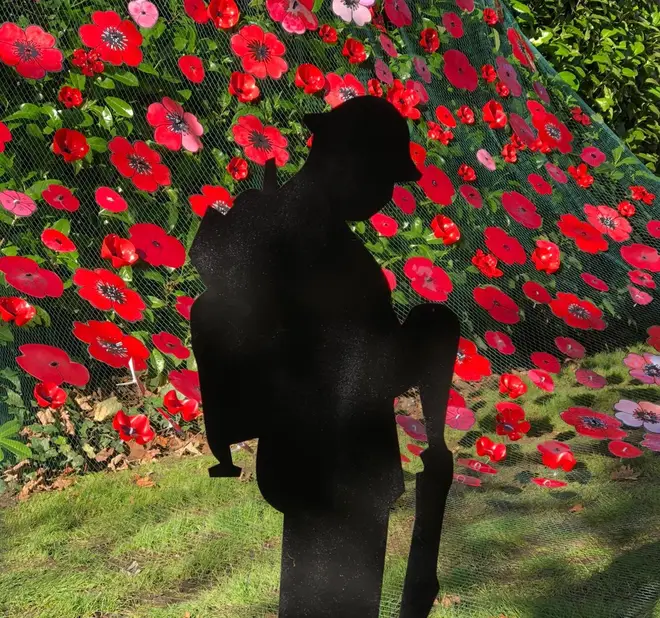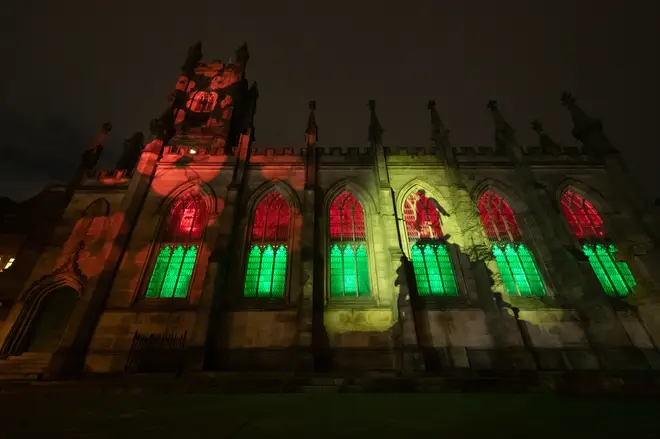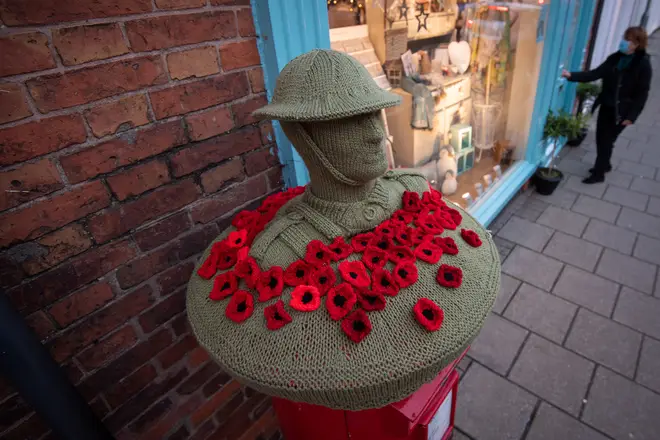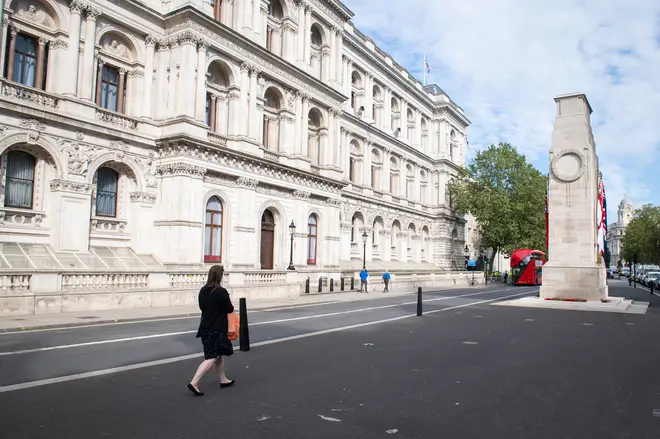
Nick Ferrari 7am - 10am
6 November 2020, 15:10 | Updated: 6 November 2020, 15:19

The 102nd anniversary of the armistice which ended the First World War will be a little bit different this year, but when is Remembrance Day and how have this year's services been affected by Covid?
Limits on gatherings, cancelled events and health concerns mean many of those who served in the armed forces will be unable to mark the day in their usual way.
The day will be “a little bit different” to usual, veterans minister Johnny Mercer said.
Read more: Remembrance Sunday to proceed with covid restrictions affecting commemorations
Read more: Public banned from cenotaph on Remembrance Sunday due to covid
Veterans have urged the public to "take a few minutes" to pause and reflect on Remembrance Sunday despite coronavirus restrictions affecting traditional commemorations.
But when is Remembrance Day and how have services been affected by Covid?

Remembrance Day, also known as Armistice Day, is held on 11 November.
It marks the day World War One ended, at 11am on the 11th day of the 11th month in 1918.
Remembrance Sunday is also marked each year, this falls on the second Sunday in November.
A two-minute silence is held every year at 11am on Remembrance Sunday to remember the people who have died in wars.
The first two-minute silence in Britain was held on 11 November 1919, when King George V asked the public to observe a silence at 11am.
He made the request so "the thoughts of everyone may be concentrated on reverent remembrance of the glorious dead".

England will be in a four-week national lockdown during this time, and there are different restrictions across Wales, Northern Ireland and Scotland.
This year, the public are being urged to honour the two-minute silence from their homes as usual on Remembrance Sunday.
The traditional annual service at the Cenotaph will still go ahead this year, though it will be closed to members of the public for the first time in its century-long history.
A limited number of people – including armed forces veterans, members of the royal family, and international leaders – will be permitted to attend the service, which typically sees thousands of people line streets through Whitehall to pay their respects in memory of those who fought for the country.
The large annual march past the memorial will not take place either, but some veterans will be invited to attend the service, which will be made “Covid-secure” by minimising attendance and ensuring strict social distancing measures are in place, organisers said.
This year, as well as wearing a poppy, support can be shown by using a digital poppy on social media sites, or by colouring in a downloadable poppy picture and displaying it.
Conservative MP Andy Carter (Warrington South) said the virus restrictions could impact the Royal British Legion's annual poppy collection.
He told the Commons: "Those restrictions also mean that poppy sellers, many of them themselves veterans, won't be able to stand on the streets and raise funds for the Royal British Legion."

Remembrance Sunday: 10,000 veterans march past the Cenotaph
The Government has said local Remembrance events should comply with social distancing rules and restrictions on the numbers of people permitted to meet outside, where applicable.
It said all gatherings involving more than six people “will need to be organised by a business, a charitable, benevolent or philanthropic institution or a public body”, and will require a risk assessment to be carried out to reduce the potential spread of Covid-19.
Downing Street has confirmed that remembrance services and events can be held, as long as there are strict social distancing measures.
The Prime Minister's official spokesperson said: "It's important that the country can continue to come together to remember the sacrifice of those who have died in the service of their country and we will ensure that Remembrance Sunday is appropriately commemorated while protecting public health."

Bob Gamble, assistant director for commemorative events for the Royal British Legion, said: “The decision not to proceed with the annual march past the Cenotaph has been taken by the Government based on expert advice to protect the health and wellbeing of all those who would have been travelling to and participating in the event.
“Whilst it is deeply disappointing that the march will not be taking place this year, we can all still play a part in ensuring we mark the occasion appropriately and pay tribute to the service and sacrifice of our armed forces on Remembrance Sunday.
“We are encouraging people across the country to participate in their own personal moment of remembrance, whether that be watching the service on television or pausing for the two-minute silence.”
Mel Waters, chief executive of military charity Help for Heroes, said: “Remembrance is an important time to remember the fallen, but also to remind the nation that many veterans are living with illness or injury and continue to need support.
“We are sorry to hear that the annual Cenotaph event is not going ahead, but the safety of those participating must be the priority.”